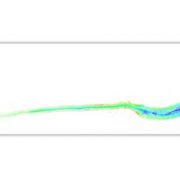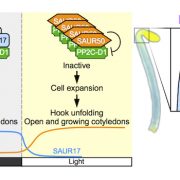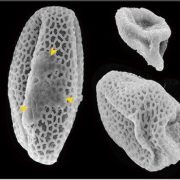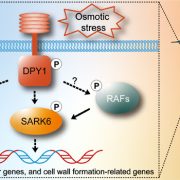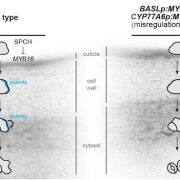A module controlling endoreduplication and cell growth in Arabidopsis
Background: Organ size is coordinately regulated by both cell number and cell size. Endoreduplication is often associated with cell size in plants and animals, but the mechanisms underlying plant endoreduplication are not fully understood. CDKB1;1 has been reported to form a functional complex with CYCA2;3 to suppress endoreduplication onset in Arabidopsis. The da3-1 mutant produces large cotyledons and flowers with increased cell size and endoreduplication. DA3 encodes UBIQUITIN-SPECIFIC PROTEASE14 (UBP14), which influences the abundance of CDKB1;1 and CYCA2;3 to regulate endoreduplication and cell growth in Arabidopsis.
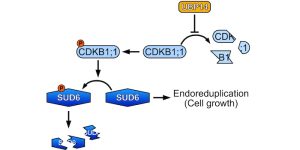 Question: Several genes affect endoreduplication in Arabidopsis, but the mechanisms underlying plant endoreduplication are still largely unknown. Here we discovered that the DA3/UBP14-CDKB1;1-SUD6/CDKG2 regulatory module controls endoreduplication and cell growth in Arabidopsis.
Question: Several genes affect endoreduplication in Arabidopsis, but the mechanisms underlying plant endoreduplication are still largely unknown. Here we discovered that the DA3/UBP14-CDKB1;1-SUD6/CDKG2 regulatory module controls endoreduplication and cell growth in Arabidopsis.
Findings: The sud6-1 allele partially suppressed the endoreduplication and plant growth phenotypes of da3-1. SUD6 encodes cyclin-dependent kinase G2 (CDKG2). Genetic analyses supported the notion that DA3/UBP14, CDKB1;1, and SUD6/CDKG2 function in a common pathway to control endoreduplication and cell growth. Further analysis showed that CDKB1;1 interacts with and phosphorylates SUD6/CDKG2, thereby resulting in the reduced abundance of SUD6/CDKG2. Therefore, our findings reveal a genetic and molecular framework for DA3/UBP14-CDKB1;1-SUD6/CDKG2 cascade-mediated control of endoreduplication and cell growth in Arabidopsis.
Next steps: It will be important to explore how CDKG2 influences the expression of cell cycle genes in the future. It is also essential to identify the coupled cyclins of SUD6/CDKG2 that function in the regulation of endoreduplication. Considering that CDKBs not only play crucial roles in endoreduplication control but also appear to be activated during the DNA damage response in plants, it will be a worthwhile challenge to investigate the possibility that CDKG2 might be involved in the DNA damage response.
Shan Jiang, Jinwei Wei, Na Li, Zhibiao Wang, Yilan Zhang, Ran Xu, Lixun Zhou, Xiahe Huang, Li Wang, Shiyi Guo, Yingchun Wang, Chun-Peng Song, Wei Qian, and Yunhai Li (2022). The UBP14-CDKB1;1-CDKG2 cascade controls endoreduplication and cell growth in Arabidopsis. https://doi.org/10.1093/plcell/koac002


